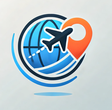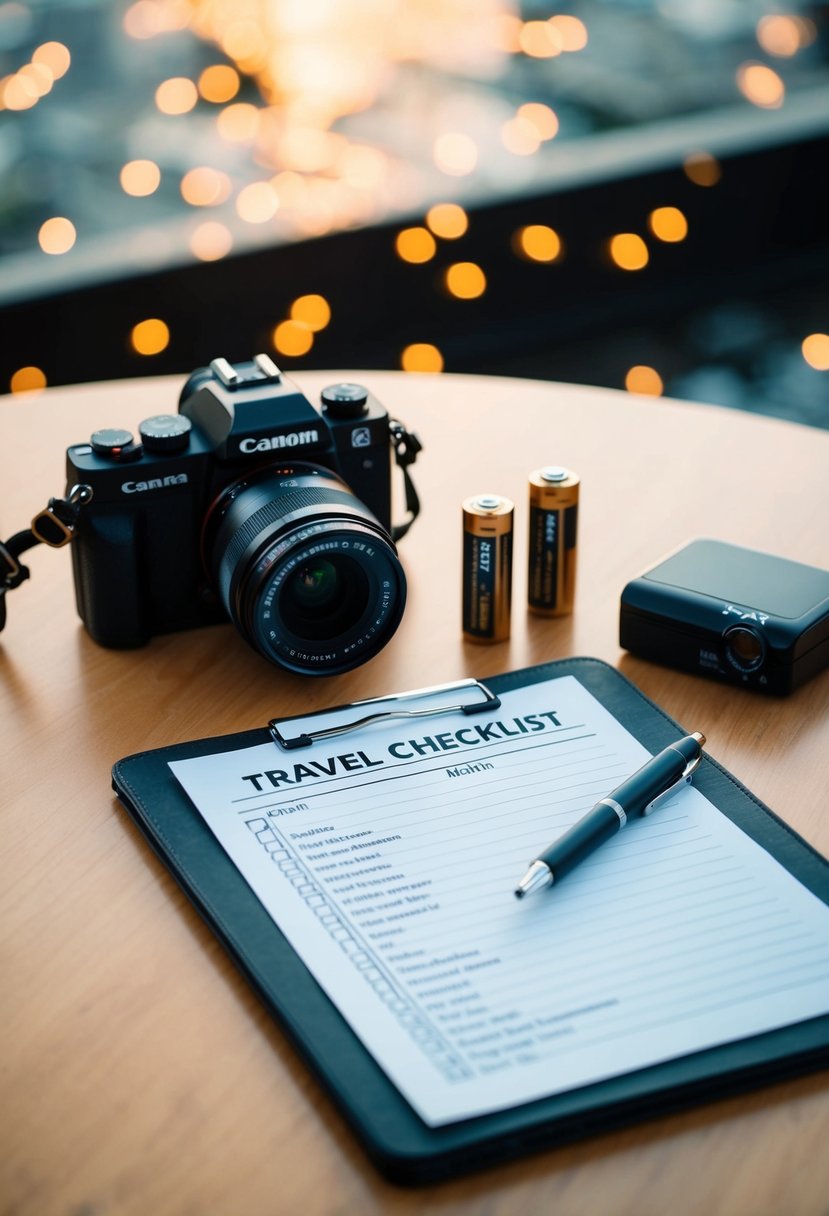Traveling can be an exciting adventure, but it often requires careful planning and organization. Having a reliable travel checklist is essential for ensuring nothing important is left behind. A well-structured packing list can help travelers remember crucial items such as documents, health essentials, electronics, clothing, toiletries, and more.
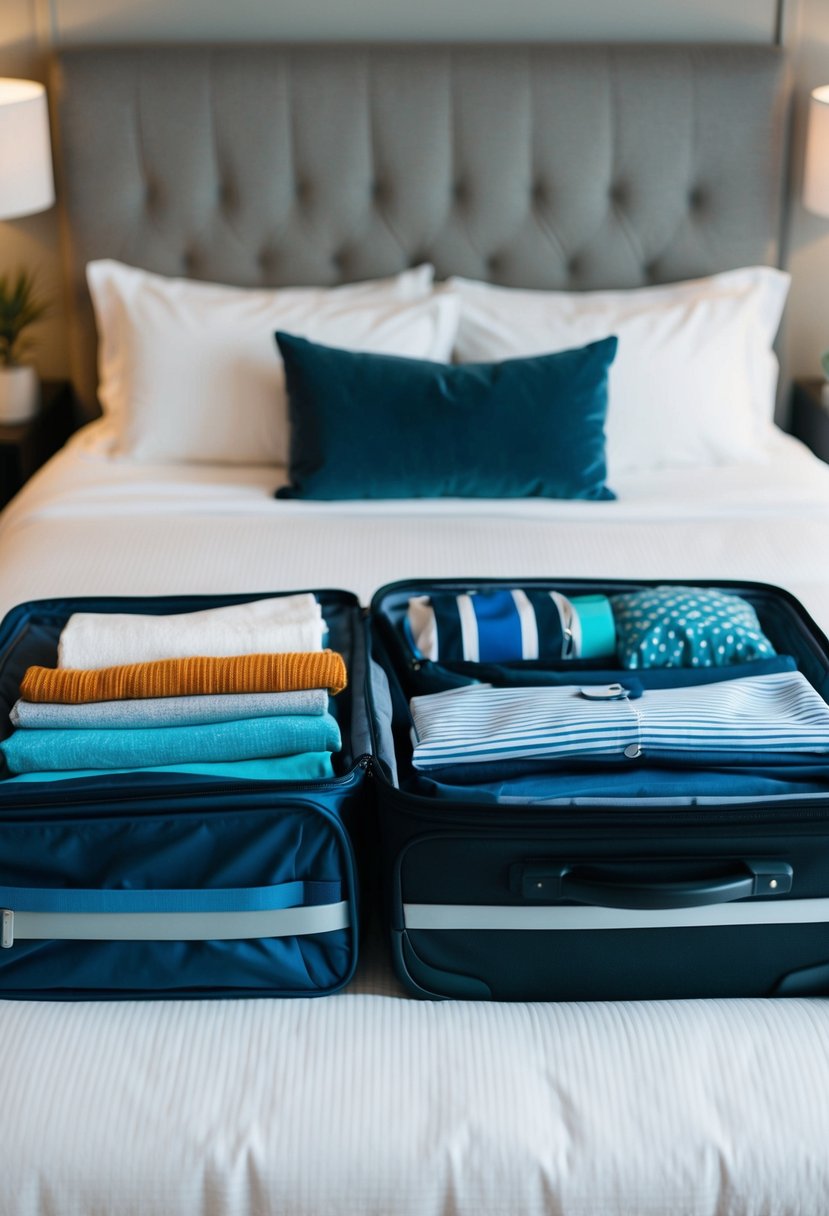
Different travelers may have unique needs based on their destinations and activities. For this reason, an easy-to-follow checklist can be tailored to individual preferences while covering essential categories. This includes everything from clothing for different weather conditions to necessary items for specific activities.
By using an effective packing checklist, travelers can reduce stress and improve their travel experience. With the right tools, they can be better prepared for any trip, ensuring they have everything needed for a smooth journey.
1) Passport and visas
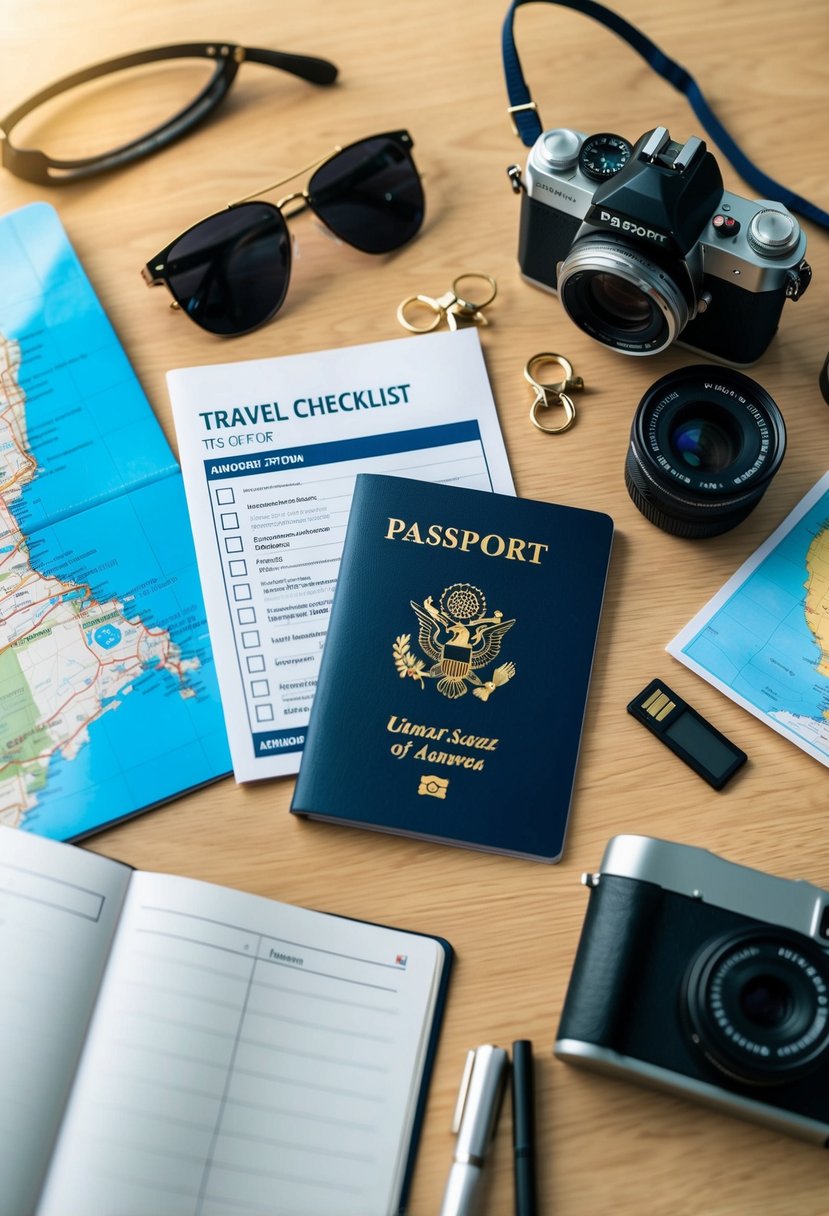
A passport is essential for international travel. It verifies identity and nationality. Travelers must ensure their passport is valid for at least six months beyond their return date.
Visas may be required depending on the destination. Some countries require travelers to obtain a visa before arrival. It is crucial to check visa requirements well in advance of departure.
Travelers should keep photocopies of their passport and visa. This can be helpful if originals are lost or stolen. Storing digital copies on a secure cloud service is also a smart idea.
It’s recommended to have a secure place to store these documents during the trip. A travel wallet can keep them safe and organized. Always check for any updates on travel restrictions or requirements before flying.
2) Travel insurance documents
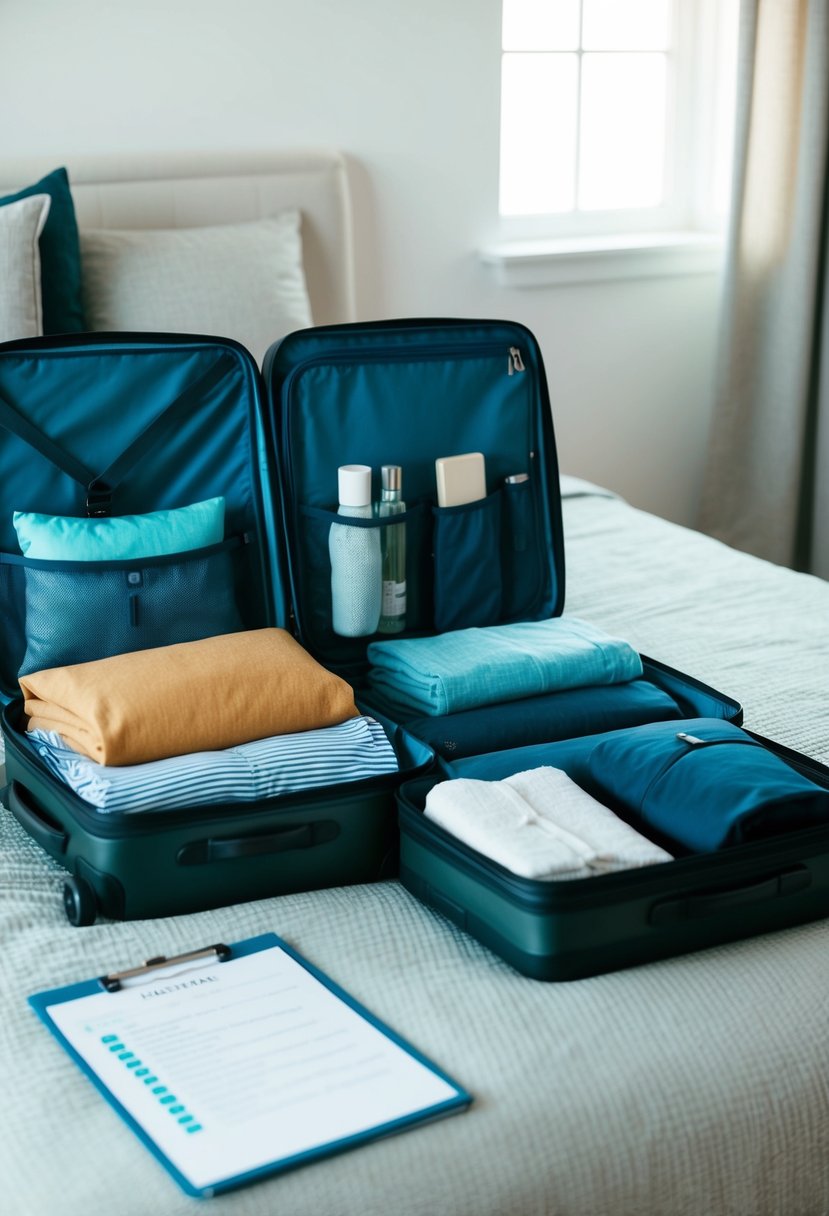
Travel insurance documents are crucial when preparing for a trip. They provide proof of coverage in case of emergencies.
These documents can include the insurance policy number, contact information for the insurance company, and details about what the plan covers. It is important to have a printed copy as well as digital copies.
Travelers should review their policy carefully. Understanding coverage limits and exclusions helps avoid surprises during a trip.
In case of an emergency, having these documents readily available can simplify the process of getting help. Many hospitals and clinics may require proof of insurance for treatment.
Keeping the insurance documents in a safe and accessible place is wise. Travelers can store them in a travel wallet or a secure app on their phone.
For added security, it is helpful to share the information with a family member or friend. This ensures that someone else has access to the details if needed.
3) Cash and credit cards
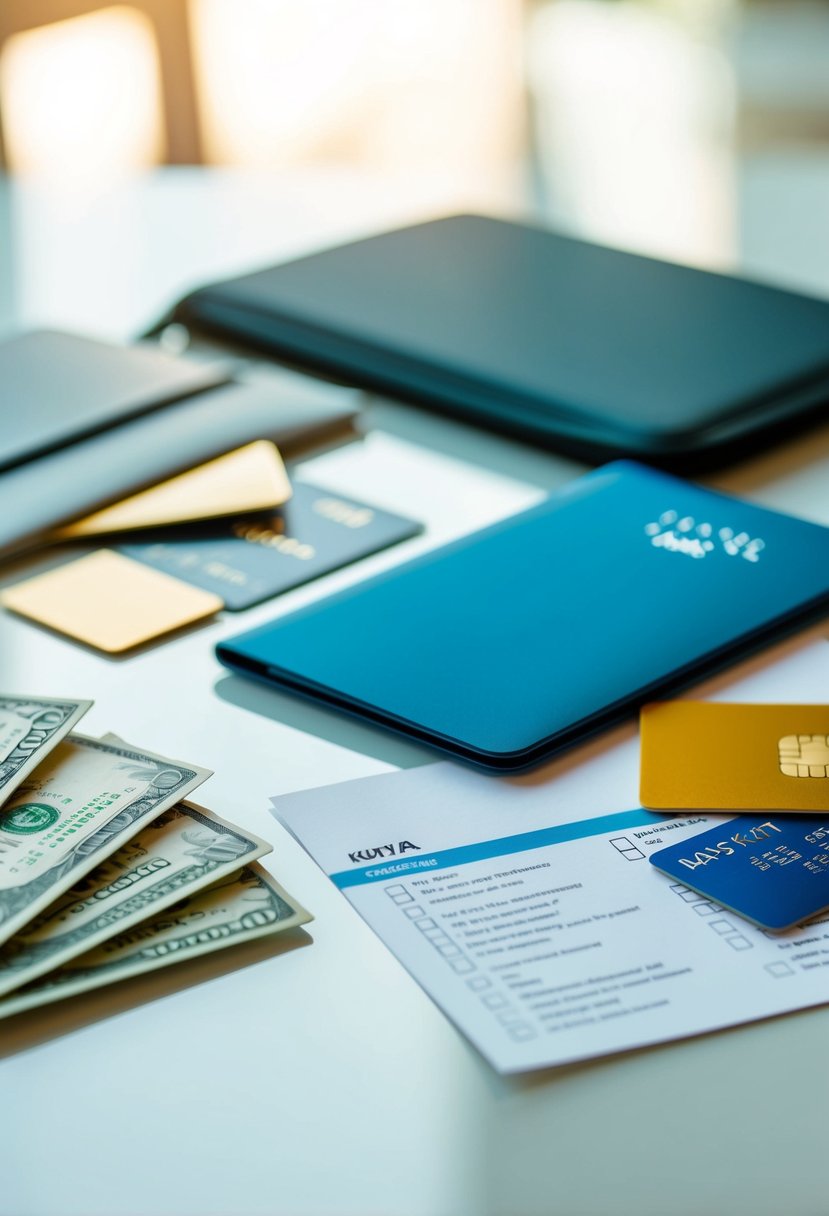
Cash and credit cards are essential when traveling. They provide flexibility and convenience during a trip. Having both options ensures one is prepared for various situations.
Cash is useful for small purchases, tips, or places that do not accept cards. It is advisable to carry some local currency, especially in countries where cash is preferred.
Credit cards offer protection against theft and fraud. Many cards have benefits like travel insurance and rewards points. It is important to notify the bank of travel plans to avoid issues.
Using cards for larger expenses can help manage spending. It also makes tracking expenses easier. Travelers should consider bringing at least two credit cards as a backup.
Before traveling, he or she should check if the credit card works internationally. Some cards come with foreign transaction fees. Understanding the fees can save money during the trip.
Bringing a mix of cash and credit cards helps ensure a smoother travel experience.
4) Phone and charger
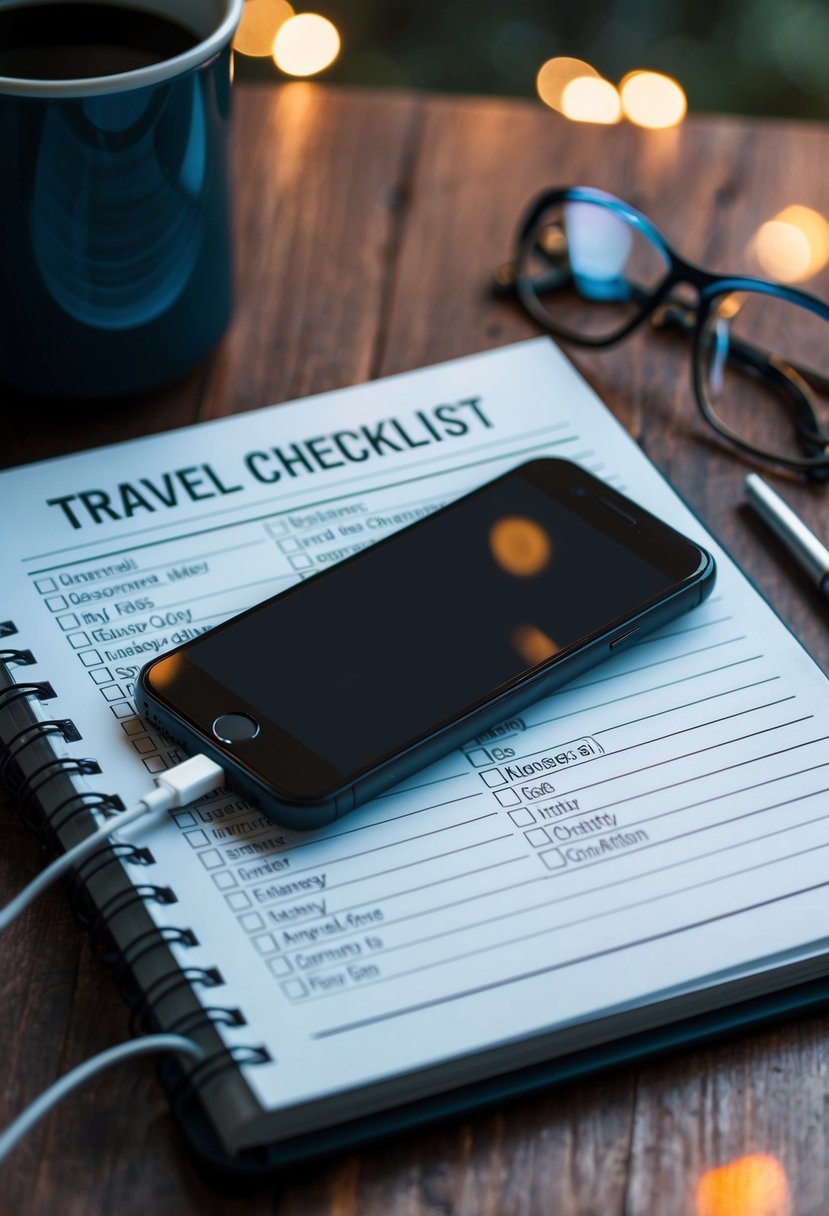
A phone is essential for communication and navigation while traveling. It allows travelers to stay connected with family and friends. It also helps in finding directions or local recommendations.
Packing a charger is just as important. Without a charger, a phone can run out of battery quickly. Many airports and public places offer charging stations, but having a personal charger is convenient.
Travelers should consider a portable power bank. This device can charge the phone on the go. It provides peace of mind for long trips away from power outlets.
Additionally, it’s wise to download important apps before the trip. Navigation, translation, and travel booking apps can enhance the travel experience. Keeping the phone updated can prevent issues while abroad.
Lastly, travelers should remember to bring any necessary accessories. This includes headphones and a protective case. Taking these steps ensures that the phone and charger enable a smooth journey.
5) Camera and Spare Batteries
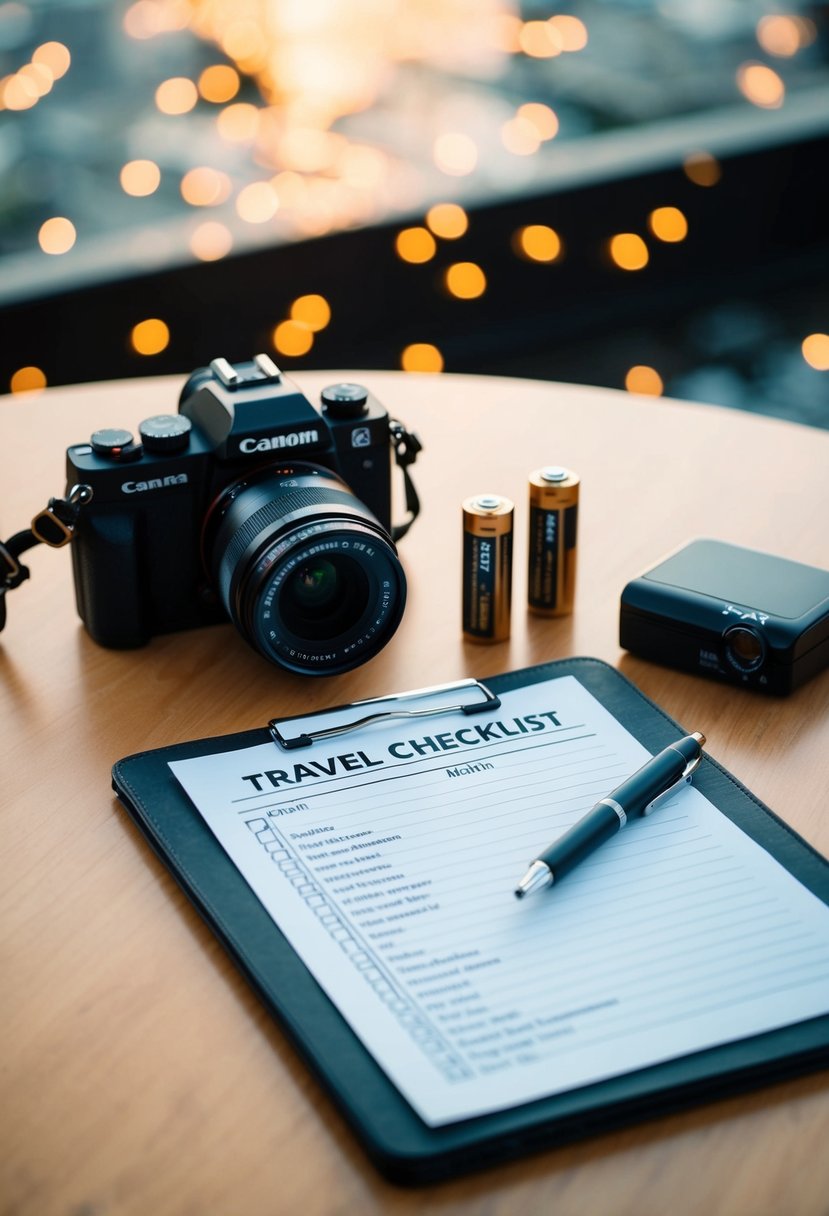
A camera is an essential item for travel. It helps capture memories and stunning views. Whether using a smartphone or a professional camera, having the right gear is crucial.
Along with the camera, spare batteries are important. No one wants to miss a great shot due to a dead battery. Packing extra batteries ensures that a traveler can keep shooting throughout the day.
Photographers should also consider bringing a sturdy camera bag. This protects the equipment from damage and keeps everything organized. A bag with padded compartments helps prevent scratches and other issues.
Additionally, carrying backup memory cards is wise. These allow for more storage space and prevent losing photos if a card becomes full. Keeping all these items together makes photography on the go much easier.
6) Travel Adapter and Converters
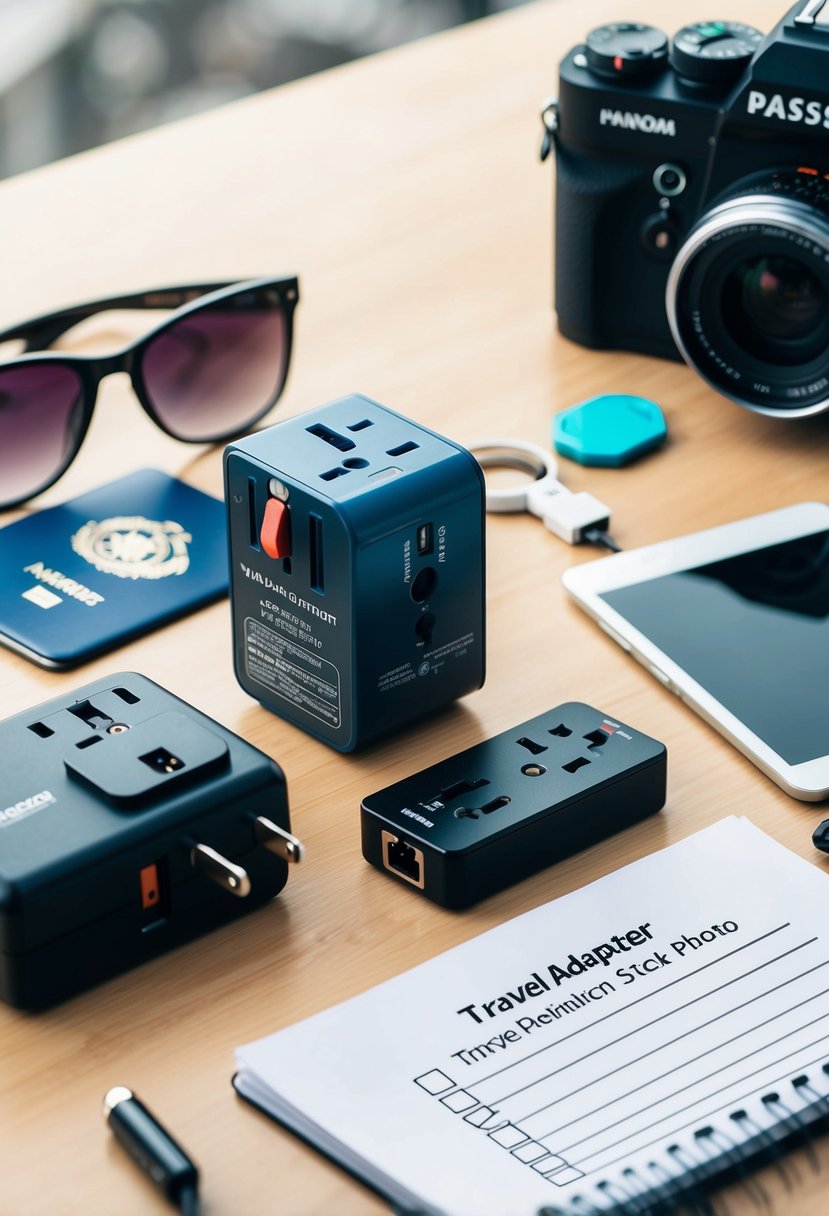
Travel adapters and converters are essential for international trips. Different countries have varying plug shapes and voltage levels. An adapter allows devices to connect to the local outlets.
Travelers should prioritize a universal adapter. This type works in multiple countries, making it a convenient choice. It eliminates the need to carry several specific adapters.
Voltage converters may also be necessary. These devices convert voltage so that electronics can work safely in different regions. Many small electronics and chargers are dual voltage, making them compatible without a converter.
It’s important to verify the device specifications before use. Not all devices require a converter, but knowing this helps prevent damage. Proper preparation ensures that electronics function properly during travels.
7) Medications and prescriptions
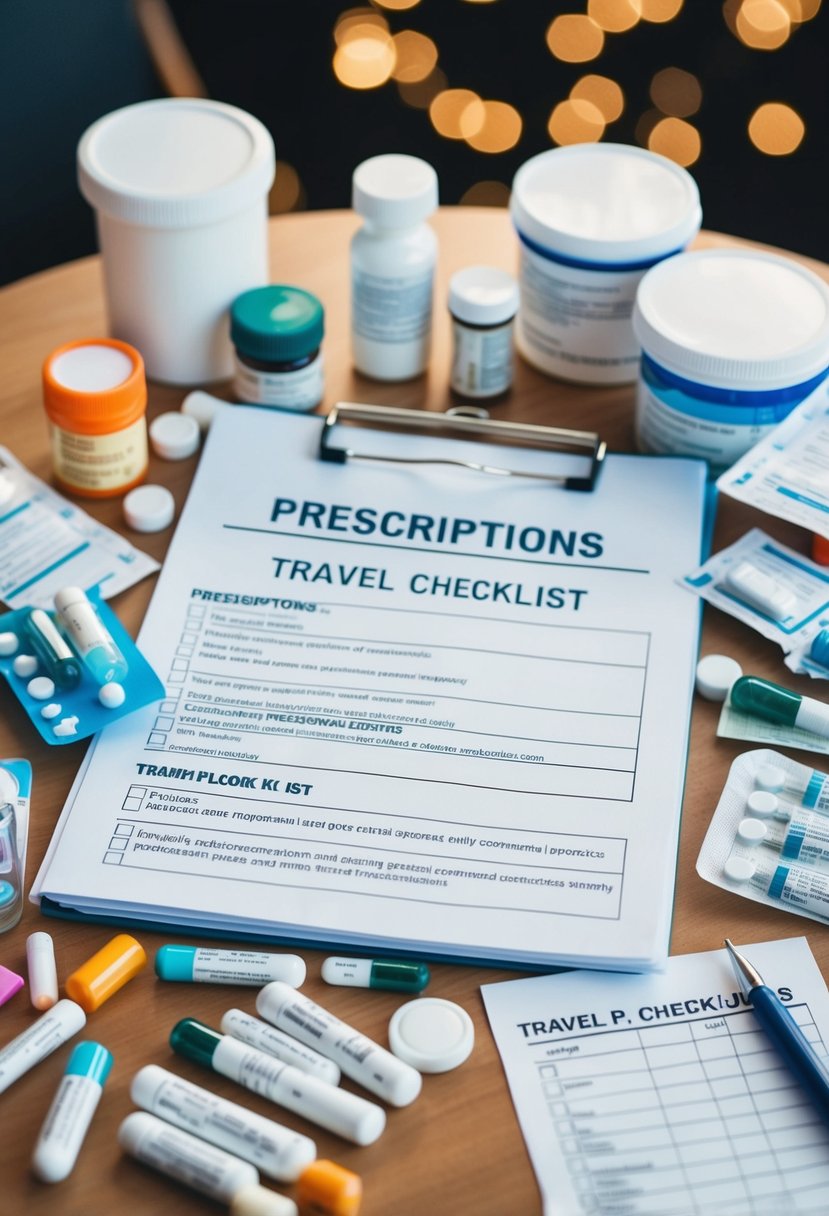
When traveling, it is important to pack any necessary medications and prescriptions. This includes both regular medications and any over-the-counter products that may be needed.
She should bring enough medication for the entire trip, plus a little extra in case of delays. It’s wise to keep medications in their original packaging with labels intact.
He must also carry a copy of prescriptions. This can be useful if refills are needed during the trip. Having a list of medications and dosages is helpful.
In addition, travelers should consider any health issues that might arise. Bringing items such as allergy medications, pain relievers, or anti-nausea drugs can be beneficial.
It is essential to be aware of the medication rules of the destination country. Some places have restrictions on certain medications, so checking in advance is a good idea.
8) Itinerary and reservations
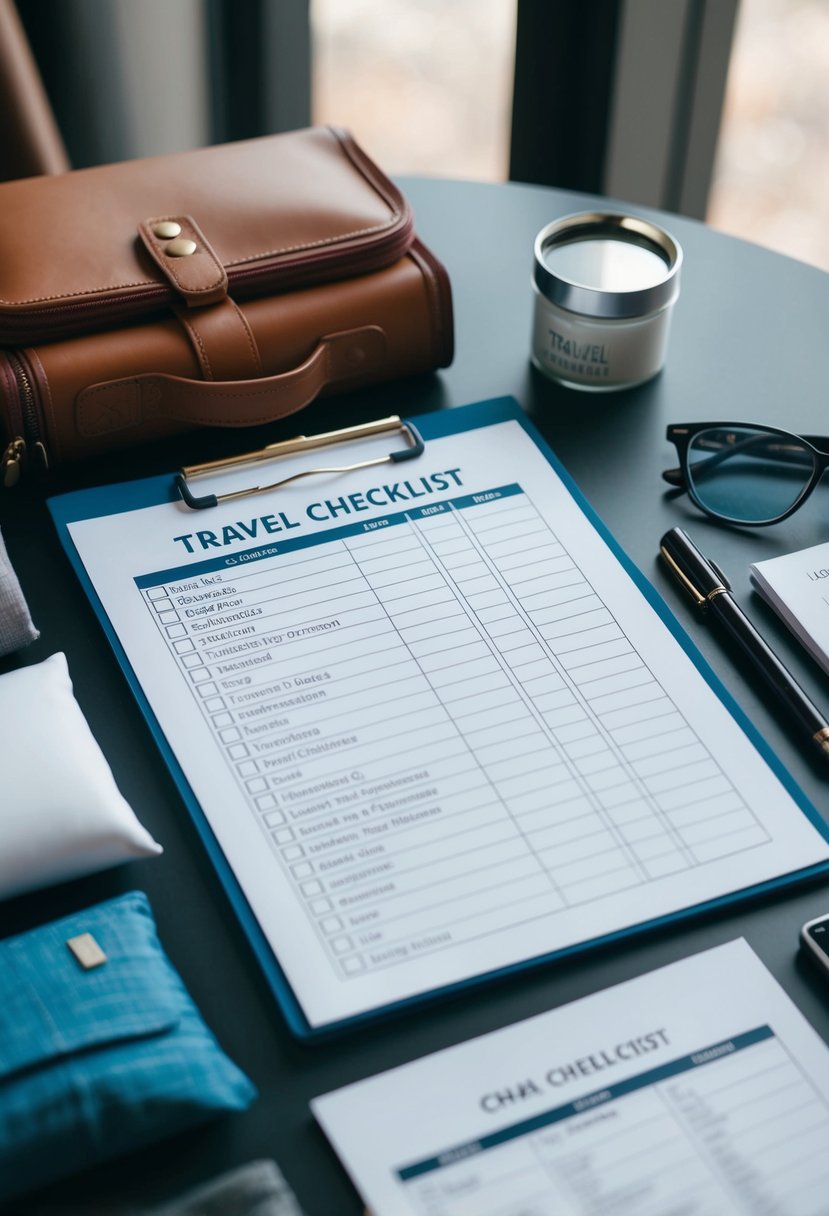
Having a detailed itinerary is essential for a smooth trip. It outlines all travel plans, including flights, accommodations, and activities. A well-organized itinerary helps travelers stay on track.
Reservations play a significant role in planning. They ensure that travelers have a place to stay and activities lined up. This can include hotel bookings, car rentals, and tickets for attractions.
Travelers should keep copies of these documents. Digital copies on a phone or tablet can be helpful, while printed copies provide a backup. It is also wise to confirm all reservations a few days before departure.
A checklist can help manage all itinerary details. This includes flight times, hotel addresses, and confirmation numbers. Organizing this information reduces stress and enhances the travel experience.
Travel Documents and Essentials
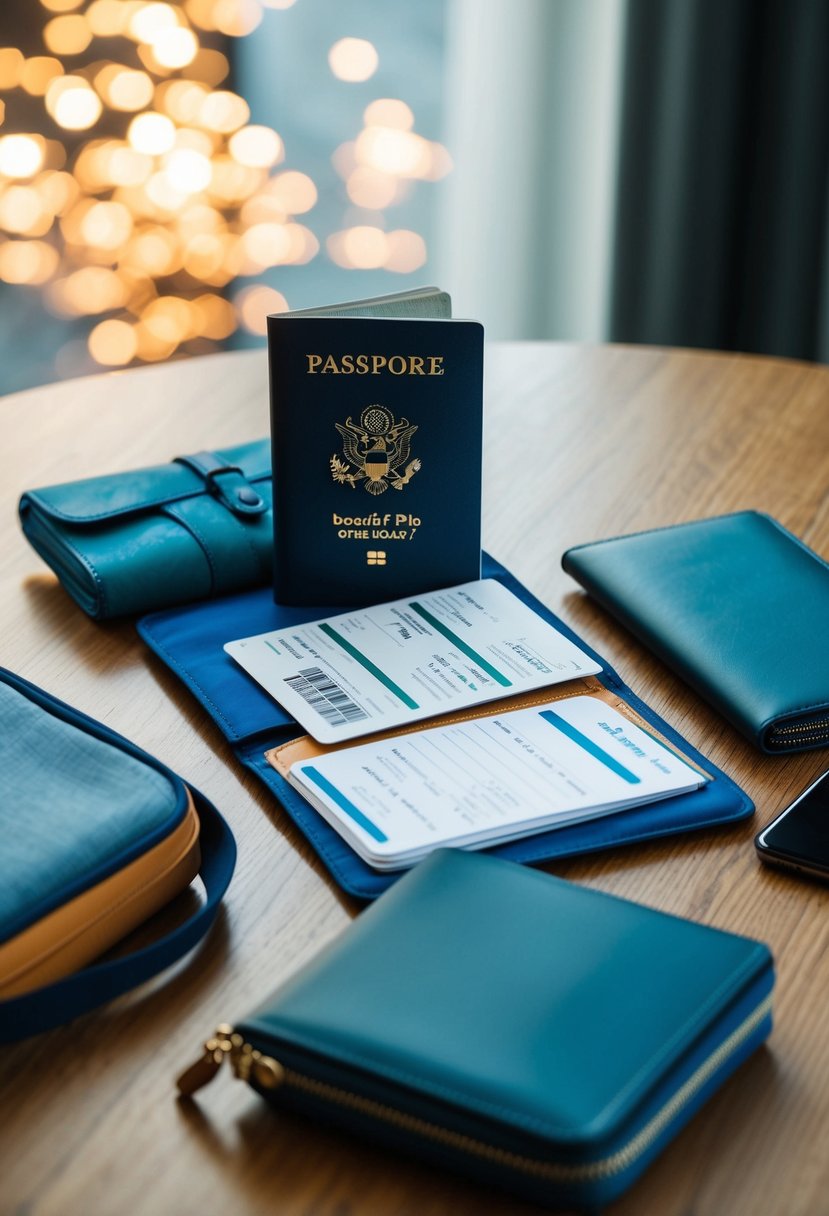
Having the right travel documents and health essentials is crucial for smooth travel. Careful organization and smart preparation can help avoid issues at airports and other checkpoints.
Organizing Travel Documents
Travelers must ensure that all important documents are organized and easily accessible. These documents typically include:
- Passport: Make sure it is valid for at least six months beyond the trip’s end date.
- Visa: Check requirements for the destination country and obtain if necessary.
- Driver’s License: Required for car rentals and identification.
- Travel Insurance: A policy that covers emergencies and unexpected issues.
- Reservation Confirmations: Include hotel, flights, and activities.
Using a travel wallet can keep these items together. It’s wise to make photocopies of critical documents. Keep one set in the wallet and another at home or in a secure digital format. This can help if anything is lost during the trip.
Accurate Health Preparations
Health preparations are vital for any trip. Travelers should consider the following:
- Vaccination Records: Some destinations require proof of vaccinations.
- Medications: Bring enough for the entire trip, along with prescriptions if needed.
- First Aid Kit: Pack basics like band-aids, pain relievers, and any personal medications.
- Emergency Contacts: Keep a list of important contacts, including family members and local health services.
Research any health advisories for the destination. Some areas may require specific health precautions, such as vaccinations or medication for insect bites. Keeping these health essentials organized can ensure a safer and more enjoyable trip.
Electronics and Clothing Considerations
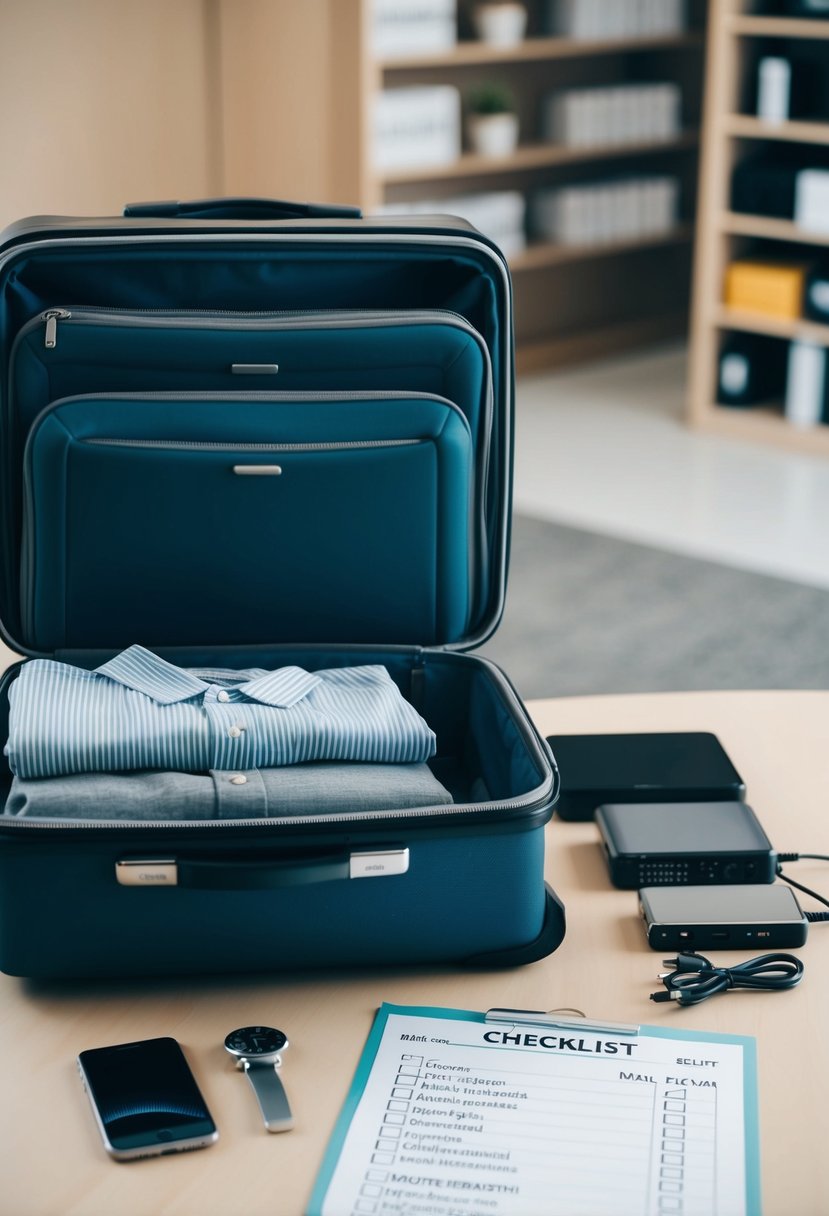
When traveling, selecting the right electronics and clothing is key to a comfortable and enjoyable experience. Both aspects should fit the trip’s needs while considering location and activities.
Choosing the Right Electronics
Travelers should prioritize essential electronics to stay connected and entertained. Key items include:
- Smartphone: For navigation, communication, and capturing memories.
- Portable Charger: To ensure devices remain charged throughout the day.
- Adapter: A universal power adapter helps accommodate different plug types across countries.
- Camera: A compact camera or a high-quality smartphone camera is great for photography.
Additionally, travelers should consider apps that can help with language translation, local maps, or itineraries. Packing lightweight headphones can also enhance travel comfort, whether on a plane or in a busy city.
Clothing and Weather Adaptations
Dressing appropriately for the climate is crucial. Travelers should assess the destination’s weather. Layers are often beneficial. A suggested packing list includes:
- Base Layers: Lightweight shirts can provide comfort.
- Insulating Layers: A warm fleece or sweater helps in cooler climates.
- Waterproof Jacket: Protects against rain and wind.
- Versatile Footwear: Comfortable shoes that can handle different terrains.
Packing clothing that can mix and match helps to optimize luggage space. It is also wise to choose quick-drying fabrics for ease of washing during the trip. This ensures that travelers are prepared for a variety of activities and conditions.
Toiletries and Miscellaneous Needs
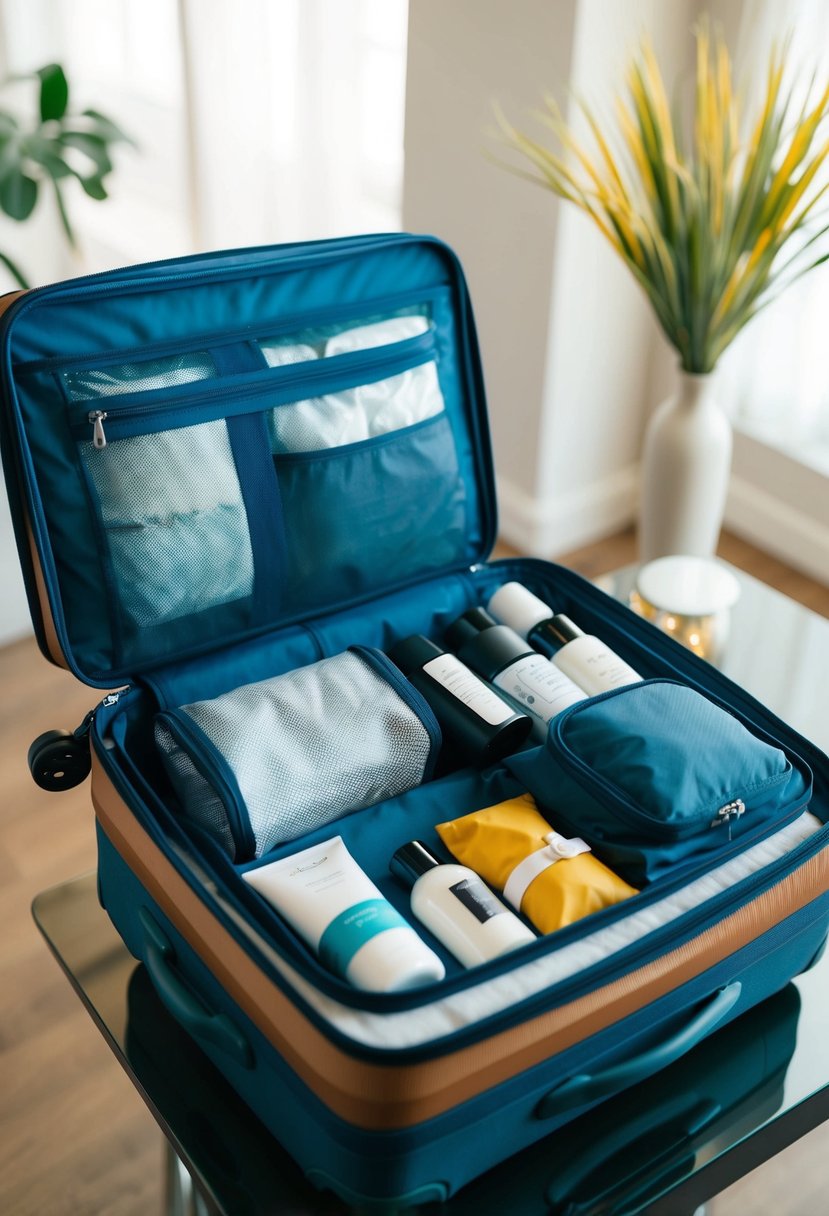
Packing the right toiletries and miscellaneous items can make travel more comfortable. It is essential to focus on what will help maintain personal hygiene and address unexpected situations while away from home.
Essential Toiletries for Travel
Travelers should prioritize essential toiletries to ensure personal care during their trips. A good list can include:
- Toothbrush and Toothpaste: A travel-sized or compact toothbrush along with a favorite toothpaste helps maintain oral hygiene.
- Deodorant: Roller or stick deodorants are often more convenient than sprays.
- Shampoo and Conditioner: Look for travel-sized bottles to save space. It’s wise to carry hair products that suit one’s hair type.
- Soap or Body Wash: Choose a gentle option that will keep the skin moisturized.
- Skincare: Sunscreen is crucial for protecting against UV rays. Also, consider bringing a moisturizer to keep the skin hydrated, especially in dry climates.
These items may vary based on individual needs but should cover the basics for most travelers.
Miscellaneous Travel Tips
Miscellaneous items can greatly enhance the travel experience. It’s helpful to carry a few key essentials:
- Portable Charger: Keeping electronic devices charged is crucial. A portable charger ensures phones and tablets are ready for use.
- Reusable Baggies: These can organize smaller items like electronics cables or toiletries, making packing and unpacking easier.
- Tissues and Wet Wipes: Handy for cleaning hands and surfaces while on the go.
- First Aid Kit: Small kits can include band-aids, antiseptic wipes, and any personal medications.
- Sleep Mask and Earplugs: These items help create a restful environment, especially during long flights or bus rides.
Being prepared with both toiletries and miscellaneous items can ensure a smoother, more enjoyable journey.
